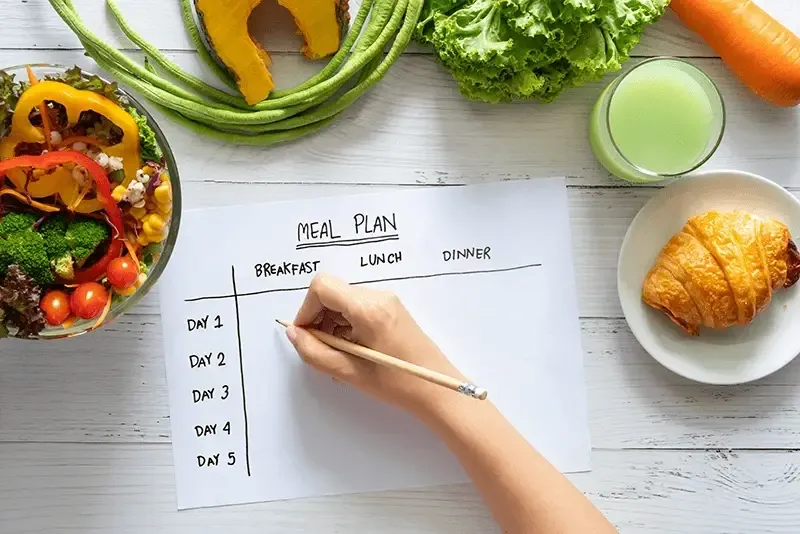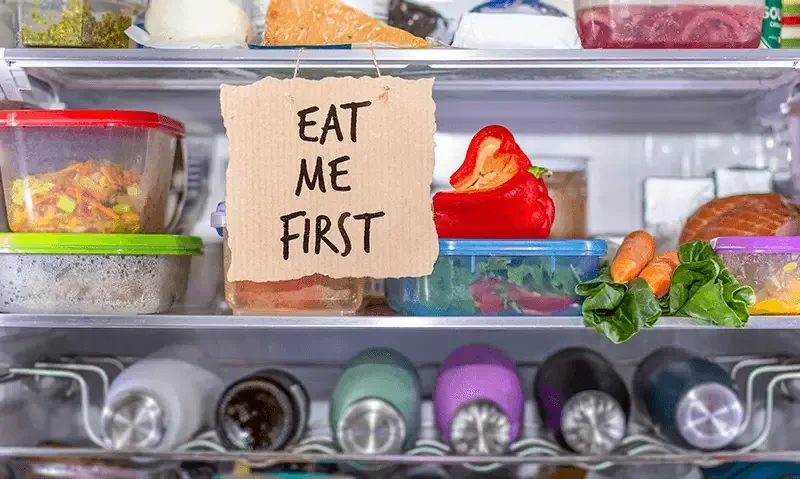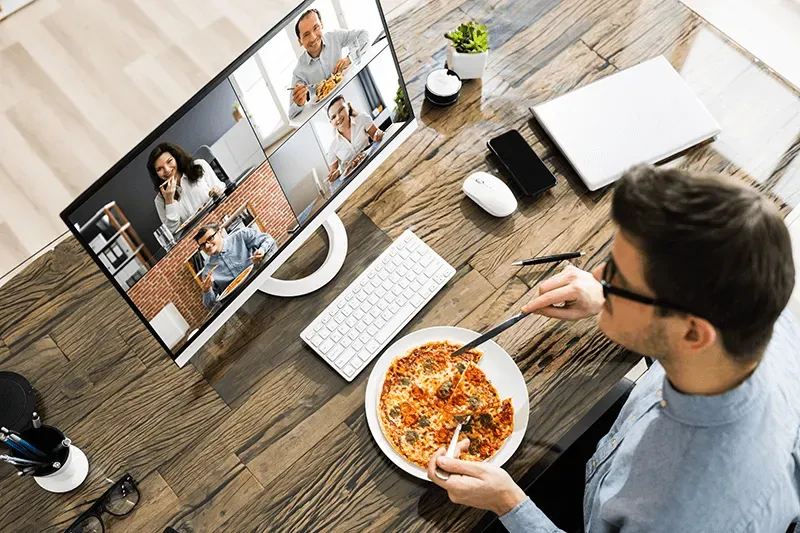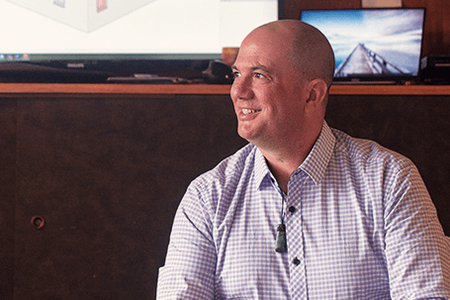Tips for healthy eating when working from home
By Synergy Health Limited | 21 March 2022
By Synergy Health Limited | 21 March 2022
Working from home can hijack your normal healthy eating habits if you are not prepared and take its toll on the quality of your work, sleep and overall mental and physical health.
Take the time to plan and prepare wholefood meals and snacks to save time during your week and help you make the right choices when you are busy, stressed or fatigued.
Establish set, regular meal times, eating away from your desk and with others when you can.

Working from home can be incredibly beneficial for those that enjoy having the flexibility to control their workday and can lead to higher levels of creativity, productivity and engagement in your role. However, flexible meal times and free reign on the fridge and cupboards can really hijack your normal healthy eating habits if you are not prepared.
You may find yourself suddenly skipping meals and chugging down your eighth coffee so you can power through your work or opening the cupboard to procrastinate, ease the 3pm slump or deal with a stressful day. Whether you are over or under eating or binging on fake, processed foods, it can really take its toll on the quality of your work, your sleep, and overall mental and physical health.
To help you establish and maintain healthy eating habits while working from home, see our top tips below.
Take control of your eating habits at home by planning your meals and snacks with your household. It seems common sense but it's not common practice. Taking the time to plan, shop, prepare or even cook meals at the weekend saves time during the week, and avoids the risk of making poor choices when you are ravenous and wondering what to eat. It will also help to cut down on the trips needed to the supermarket or online shopping.
Remember, chances are if you have fake, processed foods and beverages in the house you are more likely to eat it, so help yourself avoid temptation and don't buy them! If you're signed up to our MAS Wellbeing Hub, Āki, you can access recipes here for meal and snack inspiration.
Plan meals and snacks so you are eating a wide variety of whole foods across your week. This includes plenty of seasonal, fresh and frozen fruit and vegetables, minimally processed protein sources, and healthy fats. Eating a variety of foods will help you get a range of nutrients, will help to keep you energised and alert, physically and mentally healthy, and reduce cravings and the need to snack all day.
Aim to load up on vegetables by eating a minimum of five servings (palm-sized) of different coloured vegetables every day.
Aim to eat a portion of protein with every meal and snack including a palm-sized serving of meat, fish and seafood, eggs, nuts, seeds, beans, legumes and lentils. This will help to keep your blood sugar, insulin and appetite stable for consistent energy levels throughout your day.
If you do need to snack, prepare a range of these real food snacks in advance to save time and help you fuel that brain and body with the right foods to get through your day.

The benefit of working from home is that you save on your commute time, so use this time to cook and eat a real food breakfast and dinner. If cooking is not your forte then speak to the chef in the house.
Double or triple recipes so you can utilise leftovers for lunch and save time during the day. Having regular, whole-food meals will minimise the need to waste time snacking or grazing throughout the day and provide a more nutrient-dense satiating diet.

If you are busy or feeling stressed you can fall into the trap of skipping breakfast or lunch to get through your workload. When we are stressed often our stress hormones can reduce our appetite and we can forget to eat. However, this will always lead to an energy and productivity slump in the afternoon or see you overeating to compensate for those skipped meals.
It's important to set regular times for meals and snacks to support consistent energy and productivity levels. It will also help to set your circadian rhythm to help you get adequate sleep.
Set meals and snacks at times that work for you in terms of your hunger and commitments, however the key is to keep these consistent. Block it out in your calendar if you have to!
Avoid the temptation to eat at your desk or in your workspace and continue working. Working while eating and in a slightly stressed state can impair the absorption of the nutrients in your food and often lead to overeating. Instead, take your meal and eat at the dining table properly and if you really want to help yourself, take two minutes to do some mindfulness or deep breathing before you tuck into your meal.
Working from home can be isolating and lonely so when you can, time your meals so you can eat with your household. Research also shows that eating with others can help increase the absorption of the nutrients in your meal. If you live on your own, set up a virtual lunch date with a friend or colleague and chew the fat.

Even a small drop in water levels can lead to fatigue, confusion or mistaken hunger, so help yourself by consuming at least two to three litres of water a day. Keep a glass of water on your desk or stock the fridge with cold, mint or lemon water if that is your preference.
Members of our MAS Wellbeing Hub, Āki, can get more advice on hydration here.
Try to stick to one or two caffeinated beverages ideally before 2pm to help you control your stress levels and avoid dehydration or sleep disruption. Caffeine has an average half-life of about five hours. In other words, half of the total amount of caffeine you consume remains in your body after approximately five hours.
Thus, to avoid the substance affecting your sleep, it's generally recommended you avoid consuming it within five to six house of bedtime. Swap to herbal teas or hot water with lemon after 2pm.

If you find yourself eating to deal with stress, boredom, anger or sadness, or rewarding yourself with food, then try some of these other healthy habits to help you overcome emotional eating.
If you do feel like you've developed more of an addiction, MAS Wellbeing Hub, Āki, members can read more here.
We know eating is a quick fix and can often exacerbate our feelings as we feel guilty or crash from overindulging in stimulants like sugar, caffeine or alcohol. Take the first step in addressing your emotions by acknowledging them and talking to someone about how you are feeling.
The simple act of sharing can help you navigate a solution and start to make the changes needed to help you overcome your emotions.
Getting outside in the fresh air can help to reduce your stress levels, boost your mental health and reduce your appetite, so try a quick 10-minute wall around the block before you walk to the cupboards.
Connecting with a friend or colleague over a quick phone call can engage your brain and boost your energy levels, and help you avoid overeating to ease boredom or other emotions.
Before reaching for those unhealthy snacks, distract yourself by setting yourself a small challenge in your day to take your mind off your cravings.
If you are sleep deprived or fatigued it can interfere with your hormones controlling your energy levels and appetite. Take a short 10-minute nap if you can and it may help you feel more energised without reaching for caffeine or sugar to get you through.

Be patient with yourself, it will take time to establish the right healthy eating habits and a routine while working from home, and the occasional slip is inevitable. However, if you focus on eating a variety of nutrient-dense whole foods it will be a lot easier to stick to the healthy eating habits above!

18 November 2020
A former rocket scientist is determined to make New Zealand's housing stock warmer, drier and healthier for our communities by shifting his focus to designing energy-efficient passive houses.

5 September 2022
Amongst a whole list of options, there are three simple activities we can do to reconnect with our brain, without any cost or major effort required.

1 October 2019
Being a landlord can be complicated. Best case scenario – you have great tenants who take good care of your property and pay rent on time. But accidents happen, and it’s important to have the right insurance and follow a few guidelines.